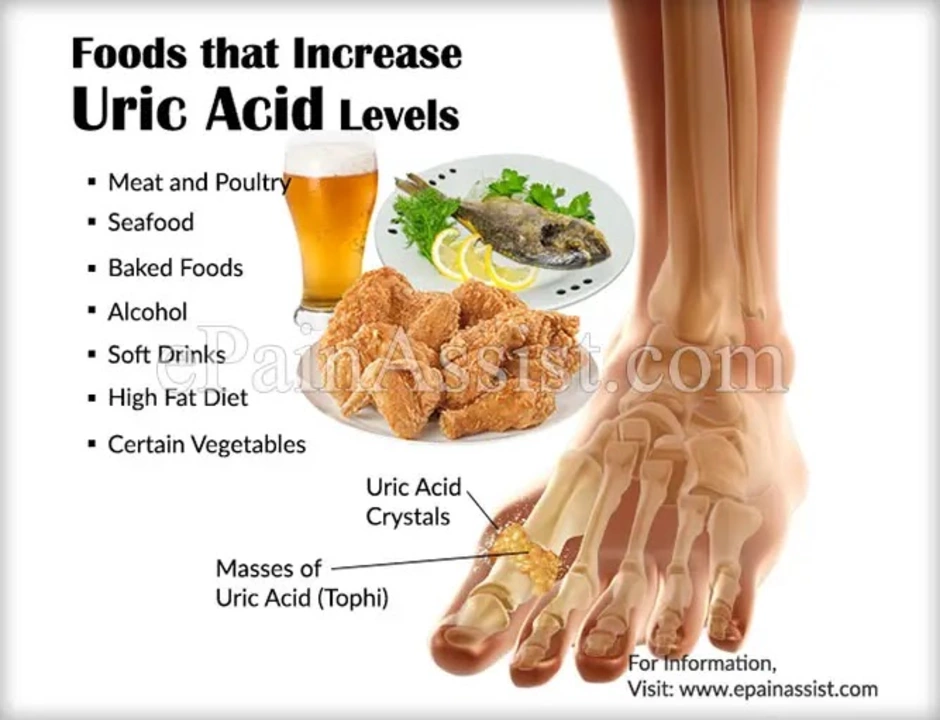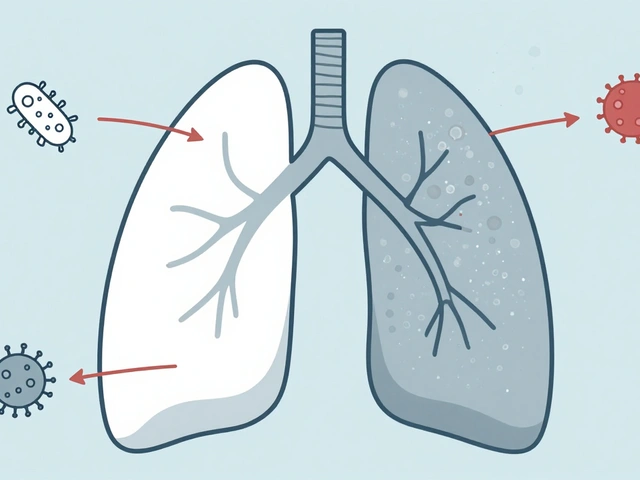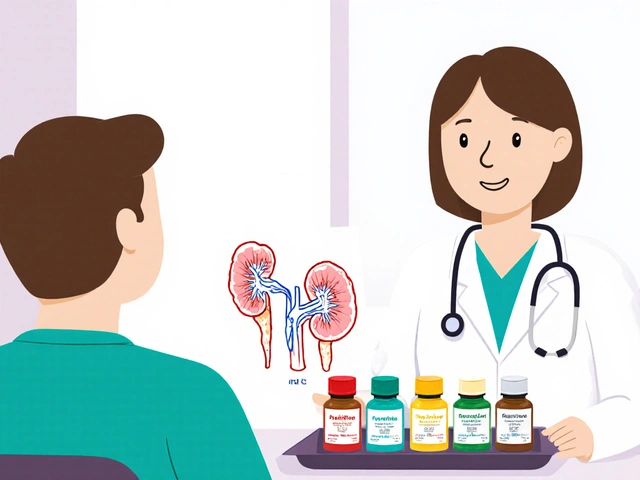Understanding Erosive Esophagitis and Its Causes
Erosive esophagitis is a condition that affects the esophagus, the tube that connects the mouth to the stomach. It occurs when the lining of the esophagus becomes inflamed and eroded due to the damaging effects of stomach acid. Common causes of erosive esophagitis include gastroesophageal reflux disease (GERD), certain medications, excessive alcohol consumption, and other factors that can weaken the esophageal lining and allow stomach acid to flow back into the esophagus.
As a sufferer of erosive esophagitis, it's important to understand the underlying causes of this condition in order to effectively manage and prevent further damage. By making certain lifestyle and dietary changes, such as adopting a low-acid diet, we can minimize the risk of complications and promote healing of the esophageal lining.
What is a Low-Acid Diet?
A low-acid diet is one that focuses on consuming foods and beverages with a low acid content. The goal is to reduce the overall acidity in the stomach, which can help lessen the severity and frequency of reflux episodes, ultimately reducing the damage caused to the esophagus. This type of diet typically involves avoiding or limiting the intake of acidic foods, such as citrus fruits, tomatoes, spicy foods, and caffeinated beverages.
As a person following a low-acid diet, I've found that making these dietary changes can greatly improve my symptoms and overall quality of life. In the following sections, I will discuss the numerous benefits of adopting a low-acid diet for those suffering from erosive esophagitis.
Reduced Acid Reflux Symptoms
One of the most notable benefits of a low-acid diet is the reduction in acid reflux symptoms. By consuming less acidic foods, we can decrease the amount of stomach acid that is produced and reduce the likelihood of experiencing reflux episodes. This can lead to less discomfort, such as heartburn, chest pain, and regurgitation, which are common symptoms of acid reflux and erosive esophagitis.
Personally, I've experienced a significant decrease in my acid reflux symptoms since adopting a low-acid diet. This has allowed me to enjoy my daily activities without the constant worry of experiencing painful reflux episodes.
Promoting Healing of the Esophageal Lining
Another benefit of a low-acid diet for erosive esophagitis sufferers is the promotion of healing in the esophageal lining. By reducing the frequency and severity of acid reflux episodes, we can minimize the damage caused to the esophagus and allow it to heal more effectively. This is crucial in preventing the progression of erosive esophagitis and reducing the risk of complications such as esophageal ulcers and strictures.
In my own experience, I've noticed a significant improvement in my esophageal health since implementing a low-acid diet. The reduced inflammation and pain in my throat have made it much easier to swallow and enjoy my meals without discomfort.
Preventing Complications
As I mentioned earlier, following a low-acid diet can help prevent complications related to erosive esophagitis. By minimizing acid reflux episodes and promoting the healing of the esophageal lining, we can reduce the risk of developing more serious conditions such as Barrett's esophagus, esophageal ulcers, and even esophageal cancer.
By taking the necessary steps to manage my erosive esophagitis through a low-acid diet, I feel more confident in my ability to prevent these complications and maintain my overall health.
Improved Sleep Quality
Acid reflux symptoms can be particularly bothersome at night when lying down, leading to disrupted sleep and poor sleep quality. By following a low-acid diet and reducing the frequency of reflux episodes, I've found that my sleep quality has significantly improved. Getting a good night's rest is essential for overall health and well-being, and this is yet another benefit of adopting a low-acid diet for erosive esophagitis sufferers.
Weight Management
Another advantage of a low-acid diet is its potential for weight management. Many of the foods that are typically avoided on a low-acid diet, such as fried and fatty foods, can contribute to weight gain. By focusing on consuming healthier, less acidic foods, we can maintain a more balanced diet which may lead to weight loss or help maintain a healthy weight.
Personally, I've found that following a low-acid diet has helped me maintain a healthier weight, which in turn has further contributed to reducing my acid reflux symptoms and promoting overall health.
Reduced Reliance on Medications
Many people with erosive esophagitis rely on medications to manage their acid reflux symptoms. While these medications can be helpful, they can also have side effects and may not always provide complete relief. By adopting a low-acid diet and minimizing reflux episodes, we may be able to reduce our reliance on medications and experience fewer side effects.
In my own experience, I've found that my need for acid reflux medications has decreased since implementing a low-acid diet, making it easier to manage my condition with fewer medications and their associated side effects.
Enhanced Overall Health
Finally, following a low-acid diet can contribute to enhanced overall health. By consuming a balanced diet rich in whole grains, lean proteins, and plenty of fruits and vegetables, we can provide our bodies with the nutrients they need to function optimally. Additionally, reducing our intake of unhealthy, acidic foods can help prevent other health issues such as heart disease, diabetes, and certain cancers.
As a person who has adopted a low-acid diet, I can confidently say that it has not only improved my erosive esophagitis symptoms but also contributed to better overall health and well-being.
Conclusion
In conclusion, adopting a low-acid diet can provide numerous benefits for individuals suffering from erosive esophagitis. By reducing acid reflux symptoms, promoting healing of the esophageal lining, preventing complications, improving sleep quality, aiding in weight management, reducing reliance on medications, and enhancing overall health, a low-acid diet can significantly improve the quality of life for those affected by this condition.
As someone who has experienced the benefits of a low-acid diet firsthand, I highly recommend giving it a try if you're struggling with erosive esophagitis. It may take time and effort to make these dietary changes, but the improvements in your symptoms and overall health will be well worth it.






mike tallent
This is gold. I switched to a low-acid diet after my endoscopy showed severe erosion. Within 3 weeks, my heartburn was 80% gone. No more midnight antacids. 🙌
Try oatmeal for breakfast, steamed veggies, and grilled chicken. Avoid citrus, coffee, and chocolate. It’s not perfect, but it’s life-changing.
Deepali Singh
The author conflates correlation with causation. Studies show that pH levels in diet have negligible impact on gastric pH due to buffering capacity. This is pseudoscience dressed as wellness advice.
Peter Stephen .O
Low acid diet? Bro, I ate a whole pizza last night and felt fine. Maybe it’s not the acid, maybe it’s the portion size or lying down right after. Just saying. 🍕🔥
Jennifer Howard
This is dangerously misleading. The American College of Gastroenterology does not endorse dietary acid reduction as a primary treatment for erosive esophagitis. The author is promoting quackery under the guise of personal testimony. You are putting your health at risk by following this advice without medical supervision.
jalyssa chea
I tried this diet and it made me depressed i stopped eating everything i loved and still got reflux maybe its not the food maybe its my stress
Rob Goldstein
From a clinical perspective, while dietary modifications are adjunctive, they are not standalone therapy. The primary driver of erosive esophagitis is transient lower esophageal sphincter relaxation (TLESR), not luminal acidity per se. However, reducing triggers like caffeine, fat, and large meals does improve symptom burden. Evidence supports this as part of a multimodal approach.
Joyce Genon
Let’s be real - this whole low-acid diet thing is just another fad that preys on people’s desperation. The fact that the author says ‘I feel more confident’ doesn’t mean it’s scientifically valid. There’s zero double-blind RCT proving that lemon juice in your diet directly causes esophageal erosion. Meanwhile, proton pump inhibitors have decades of peer-reviewed data behind them. Why are we elevating anecdotal experience over evidence? It’s embarrassing.
Sylvia Clarke
I appreciate the personal narrative, but I’m concerned this post might unintentionally discourage people from seeking proper medical care. Yes, dietary changes help - I’ve seen patients improve with alkaline water and reduced fat intake. But if you have erosive esophagitis, you need an endoscopy, not just a food journal. Please don’t mistake symptom relief for disease modification. Healing the lining requires mucosal protection and acid suppression - not just avoiding tomatoes.
Andrew Cairney
I think the real issue is that Big Pharma doesn't want you to know that you can heal your esophagus by eating bananas and broccoli. They profit from PPIs. I used to take Nexium daily. Now I eat only raw foods after 6pm and my doctor is shocked. Coincidence? I think not. 🤫
Roberta Colombin
I’ve been a nurse for 22 years and I’ve seen patients thrive with simple changes: no late meals, elevate the head of the bed, and avoid spicy foods. It’s not about being perfect - it’s about being consistent. This post isn’t perfect, but the core message is sound. Small steps matter.
Julie Roe
I want to say thank you for sharing this. I was diagnosed last year and felt so alone. I tried everything - meds, surgery, even acupuncture. Nothing worked until I cut out soda, citrus, and fried food. I didn’t know how much I was suffering until it stopped. I can now sleep on my side without waking up choking. That’s not just ‘better’ - that’s freedom. I’m not cured, but I’m living again. And that’s worth every bland meal.
George Gaitara
This is the most self-indulgent, overlong, emotionally manipulative garbage I’ve read on Reddit in months. You didn’t ‘heal’ anything. You just stopped eating fun foods and got lucky. Your ‘quality of life’ is just the absence of discomfort. Don’t act like you’ve unlocked some ancient secret. Also, your grammar is flawless. I’m impressed. And disgusted.
John Wayne
The notion that dietary pH influences gastric pH is physiologically absurd. The stomach maintains a pH of 1.5–3.5 regardless of whether you eat a lemon or a potato. This entire framework is a myth perpetuated by wellness influencers. I’m surprised anyone still buys this.
vinod mali
In India we have been doing this for centuries. No coffee no citrus no spicy food. We eat khichdi, rice, dal, boiled veggies. Simple. No need for fancy diet plans. My uncle had severe reflux for 10 years. Changed diet, no meds. Now he runs marathons. No hype. Just food.
Robert Merril
I tried this diet and lost 30lbs and my reflux went away but also my girlfriend left me because I only ate steamed broccoli and quinoa for 6 months so maybe its not worth it
Abdul Mubeen
You know who profits from this? The organic food industry. The same people who sell you $12 bottles of ‘alkaline water’. This isn’t medicine - it’s marketing. They want you to believe your body is too fragile to handle normal food. It’s a lie. The esophagus is designed to handle acid. You’re being manipulated.
Kathy Grant
There’s something deeply human about this story. Not just the diet - but the quiet dignity of choosing to care for your body when the world tells you to ignore it. I’ve watched people sacrifice joy for control, and I’ve watched others surrender control and lose themselves. This isn’t about acid levels. It’s about reclaiming agency. Even if it’s just one meal at a time. Even if it’s just broccoli and rice. You’re not broken. You’re becoming.
Gary Lam
Bro I’m from Thailand. We eat mango sticky rice, chili paste, and tom yum every day. My grandma had GERD for 40 years. She never ate ‘low acid’. She just didn’t overeat and slept sitting up. Sometimes the answer isn’t diet - it’s posture, timing, and not being a stress zombie.
Jennie Zhu
While anecdotal reports of dietary improvement are compelling, the pathophysiological mechanism underlying erosive esophagitis remains primarily related to transient lower esophageal sphincter relaxations and impaired esophageal clearance, rather than luminal acid concentration per se. Therefore, while dietary modification may serve as an adjunctive therapeutic modality, it cannot be considered a primary or curative intervention in the absence of pharmacologic acid suppression or surgical correction.
Noel Molina Mattinez
I’ve been on this diet for 3 months and it’s made my life better I don’t care what the science says I feel good and that’s what matters